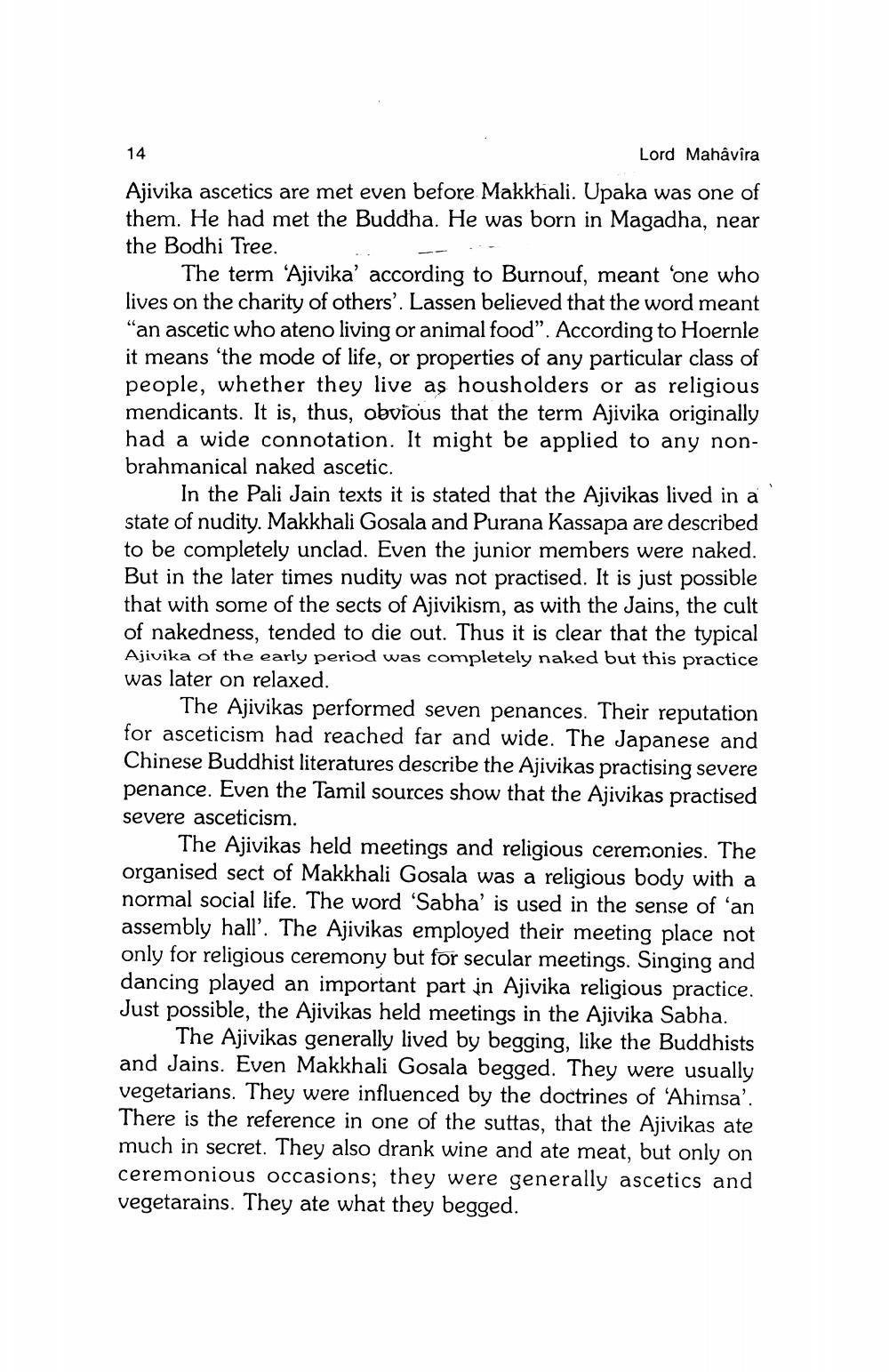________________
14
Lord Mahavira
Ajivika ascetics are met even before Makkhali. Upaka was one of them. He had met the Buddha. He was born in Magadha, near the Bodhi Tree.
The term 'Ajivika' according to Burnouf, meant 'one who lives on the charity of others'. Lassen believed that the word meant "an ascetic who ateno living or animal food”. According to Hoernle it means 'the mode of life, or properties of any particular class of people, whether they live as housholders or as religious mendicants. It is, thus, obvious that the term Ajivika originally had a wide connotation. It might be applied to any nonbrahmanical naked ascetic.
In the Pali Jain texts it is stated that the Ajivikas lived in a state of nudity. Makkhali Gosala and Purana Kassapa are described to be completely unclad. Even the junior members were naked. But in the later times nudity was not practised. It is just possible that with some of the sects of Ajivikism, as with the Jains, the cult of nakedness, tended to die out. Thus it is clear that the typical Ajivika of the early period was completely naked but this practice was later on relaxed.
The Ajivikas performed seven penances. Their reputation for asceticism had reached far and wide. The Japanese and Chinese Buddhist literatures describe the Ajivikas practising severe penance. Even the Tamil sources show that the Ajivikas practised severe asceticism.
The Ajivikas held meetings and religious ceremonies. The organised sect of Makkhali Gosala was a religious body with a normal social life. The word 'Sabha' is used in the sense of 'an assembly hall'. The Ajivikas employed their meeting place not only for religious ceremony but for secular meetings. Singing and dancing played an important part in Ajivika religious practice. Just possible, the Ajivikas held meetings in the Ajivika Sabha.
The Ajivikas generally lived by begging, like the Buddhists and Jains. Even Makkhali Gosala begged. They were usually vegetarians. They were influenced by the doctrines of 'Ahimsa'. There is the reference in one of the suttas, that the Ajivikas ate much in secret. They also drank wine and ate meat, but only on ceremonious occasions; they were generally ascetics and vegetarains. They ate what they begged.




